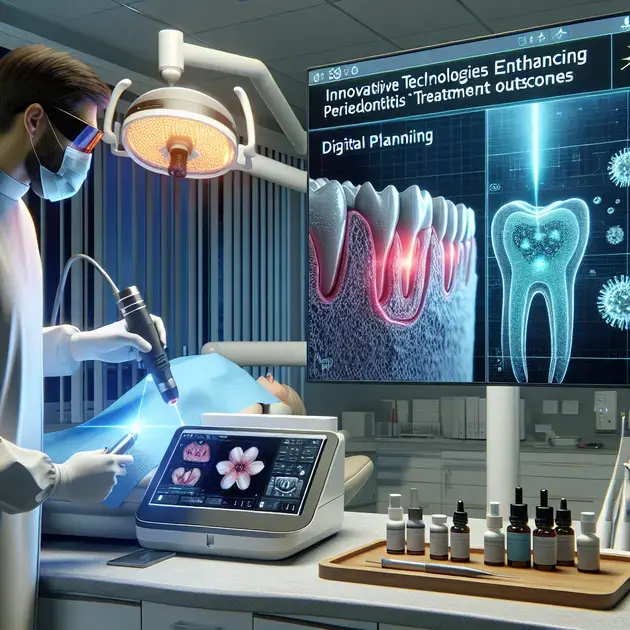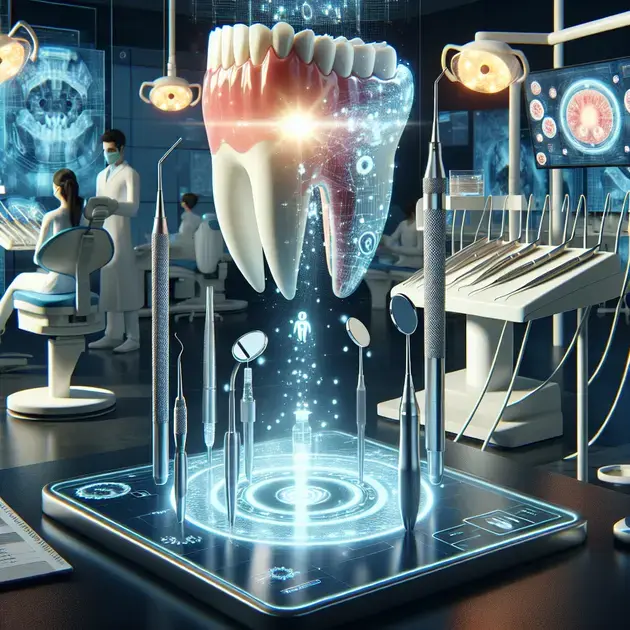Looking for effective medication for periodontitis? You’ve come to the right place. In this article, we will delve into what you need to know about treating this common yet serious gum disease.
Periodontitis can lead to tooth loss and other health complications if left untreated. Fortunately, there are several treatment options available that can help manage the condition effectively. Let’s explore the latest advancements in periodontal medication and how they can benefit patients.

Understanding Periodontitis Medication Options
Understanding the medication options available for treating periodontitis is crucial for effectively managing the disease. Before starting any medication, it is important to consult with a dental professional to determine the most suitable treatment plan for your specific condition. One of the common medications prescribed for periodontitis is antibiotics, which can help to reduce the bacterial infection in the gums. These antibiotics can be prescribed in the form of pills or as a mouth rinse.
Another option for managing periodontitis is the use of antiseptic chips, which are placed directly into the pockets of the gums where bacteria thrive. These chips release medication gradually over time, helping to reduce the bacterial load in the gums. It is important to follow the instructions provided by your dentist on how to use these chips effectively.
For more severe cases of periodontitis, your dentist may recommend a procedure called scaling and root planing, which involves deep cleaning of the gums to remove plaque and tartar buildup. This procedure can be complemented with the use of locally applied antibiotics to target the infection directly. Be sure to follow your dentist’s recommendations for post-treatment care to ensure the best results.
Keep in mind that medication alone is not sufficient to manage periodontitis effectively. It is important to maintain good oral hygiene practices, such as brushing and flossing regularly, to prevent the recurrence of the disease. Your dentist may also recommend lifestyle changes, such as quitting smoking or improving your diet, to support the effectiveness of the medication in controlling periodontitis.
The Importance of Effective Treatment for Periodontitis
Effective treatment for periodontitis is essential for preserving the health of your gums and preventing further complications. Untreated periodontitis can lead to tooth loss and may increase the risk of other systemic conditions, such as heart disease and diabetes. Therefore, it is crucial to seek professional treatment as soon as symptoms of periodontitis are detected.
One of the key components of effective treatment for periodontitis is regular dental check-ups and cleanings. During these appointments, your dentist will assess the health of your gums and provide recommendations for treatment based on your individual needs. Be sure to follow your dentist’s advice on oral hygiene practices and treatment options to achieve the best outcomes.
In addition to professional dental care, lifestyle modifications can also play a significant role in the treatment of periodontitis. For example, quitting smoking can help to reduce inflammation in the gums and improve the effectiveness of the treatment. Eating a balanced diet rich in nutrients can support gum health and overall oral hygiene.
It is important to adhere to the prescribed treatment plan and attend follow-up appointments with your dentist to monitor the progress of your periodontal treatment. By actively participating in your dental care and following the recommended guidelines, you can improve the outcomes of treatment and maintain the health of your gums in the long term.
Exploring Advanced Solutions for Managing Periodontal Disease
Managing periodontal disease effectively often requires advanced solutions that go beyond traditional treatment methods. One of the innovative approaches to managing periodontal disease is laser therapy, which involves using a specialized dental laser to target and remove bacteria from the gums. This minimally invasive procedure can help to reduce inflammation and promote gum healing.
Another advanced solution for managing periodontal disease is the use of probiotics, which are beneficial bacteria that can help to restore the natural balance of the oral microbiome. By introducing beneficial bacteria into the oral cavity, probiotics can help to crowd out harmful bacteria and support gum health. There are various probiotic supplements and oral care products available that can be used to promote oral health.
In recent years, research has also explored the potential use of stem cell therapy for regenerating damaged gum tissues caused by periodontal disease. Stem cells have the unique ability to differentiate into various cell types, including gum tissue cells, which can aid in repairing the damage caused by periodontitis. While stem cell therapy for periodontal disease is still in the early stages of development, it shows promise as a future treatment option.
It is important to stay informed about the latest advancements in periodontal disease management and discuss these options with your dental provider. By exploring advanced solutions and incorporating them into your treatment plan, you can improve the outcomes of periodontal therapy and maintain the health of your gums in the long term.

The Role of Nutrition in Periodontitis Management
Proper nutrition plays a crucial role in the management of periodontitis. A diet rich in essential nutrients such as vitamins C and D, calcium, and antioxidants can help support gum health and reduce inflammation. Foods high in sugar and processed carbohydrates, on the other hand, can contribute to the growth of harmful bacteria in the mouth, worsening periodontal disease. Including foods like leafy greens, citrus fruits, dairy products, and lean proteins in your diet can promote overall oral health and aid in the prevention and management of periodontitis.
In addition to specific nutrients, hydration is also key in periodontitis management. Drinking an adequate amount of water helps to wash away food particles and bacteria that can contribute to gum disease. A dry mouth can increase the risk of developing periodontitis, so staying hydrated is essential for maintaining oral health.
Furthermore, certain dietary habits can impact periodontitis management. Avoiding tobacco products and limiting alcohol consumption can help prevent the progression of gum disease. Smoking and heavy drinking can weaken the immune system and make it harder for the body to fight off infections, including those that affect the gums.
Overall, adopting a balanced and nutrient-rich diet, staying hydrated, and avoiding harmful habits can significantly contribute to the management of periodontitis and support overall oral health.
Innovative Technologies Revolutionizing Periodontitis Treatment
Recent advancements in technology have revolutionized the treatment of periodontitis, offering more effective and less invasive solutions for patients. One such innovation is laser therapy, which uses concentrated light beams to target and remove infected gum tissue. This targeted approach helps to eliminate bacteria and promote the regeneration of healthy gum tissue, leading to improved outcomes for patients with periodontitis.
Another groundbreaking technology in periodontitis treatment is the use of 3D imaging and digital planning. By creating detailed digital models of a patient’s mouth, dentists can better visualize the extent of gum disease and plan more precise and personalized treatment strategies. This technology allows for minimally invasive procedures and faster recovery times, enhancing the overall patient experience.
Additionally, the development of antimicrobial mouthwashes and gels has provided patients with effective at-home treatments for periodontitis. These products contain specific ingredients that target and kill harmful bacteria in the mouth, helping to reduce inflammation and prevent the progression of gum disease.
With the continual advancement of technology in the field of dentistry, patients can now benefit from more comfortable, efficient, and successful treatment options for managing periodontitis.
Personalized Approaches for Optimal Periodontitis Care
Personalized care is essential in the treatment of periodontitis, as every patient’s condition is unique and requires tailored solutions for optimal outcomes. Dentists are increasingly employing personalized approaches that take into account factors such as genetics, lifestyle habits, and medical history to create individualized treatment plans for patients with gum disease.
One key aspect of personalized periodontitis care is the use of genetic testing to identify specific risk factors and determine the most effective treatment options. By analyzing a patient’s genetic makeup, dentists can gain valuable insights into their predisposition to gum disease and tailor their treatment plan accordingly.
Furthermore, lifestyle modifications play a crucial role in personalized periodontitis care. Educating patients on proper oral hygiene practices, dietary habits, and lifestyle choices can help them better manage their gum health and prevent the progression of periodontitis. Empowering patients to take control of their oral health is integral to achieving long-term success in the treatment of gum disease.
Overall, by embracing personalized approaches that consider the unique needs and circumstances of each patient, dentists can provide more effective and comprehensive care for individuals with periodontitis, ultimately improving their oral health and quality of life.
Conclusion
In conclusion, proper nutrition, hydration, and lifestyle habits play vital roles in the management of periodontitis. A diet rich in essential nutrients such as vitamins C and D, calcium, and antioxidants, along with staying hydrated, can support gum health and prevent inflammation. Avoiding harmful habits like smoking and excessive alcohol consumption is crucial in preventing the progression of gum disease.
Moreover, innovative technologies like laser therapy, 3D imaging, and antimicrobial products have revolutionized periodontitis treatment, offering more efficient and less invasive solutions for patients. These advancements enable dentists to provide targeted and personalized care, leading to improved outcomes and a better overall patient experience.
Personalized approaches that consider individual factors such as genetics, lifestyle habits, and medical history are key in optimizing periodontitis care. By tailoring treatment plans and educating patients on proper oral hygiene and dietary practices, dentists can empower individuals to take control of their oral health and prevent the advancement of gum disease, ultimately enhancing their quality of life.



